Vancouver Biennale Presents: Voxel Bridge, the Biggest Blockchain-Based Augmented Reality Experience
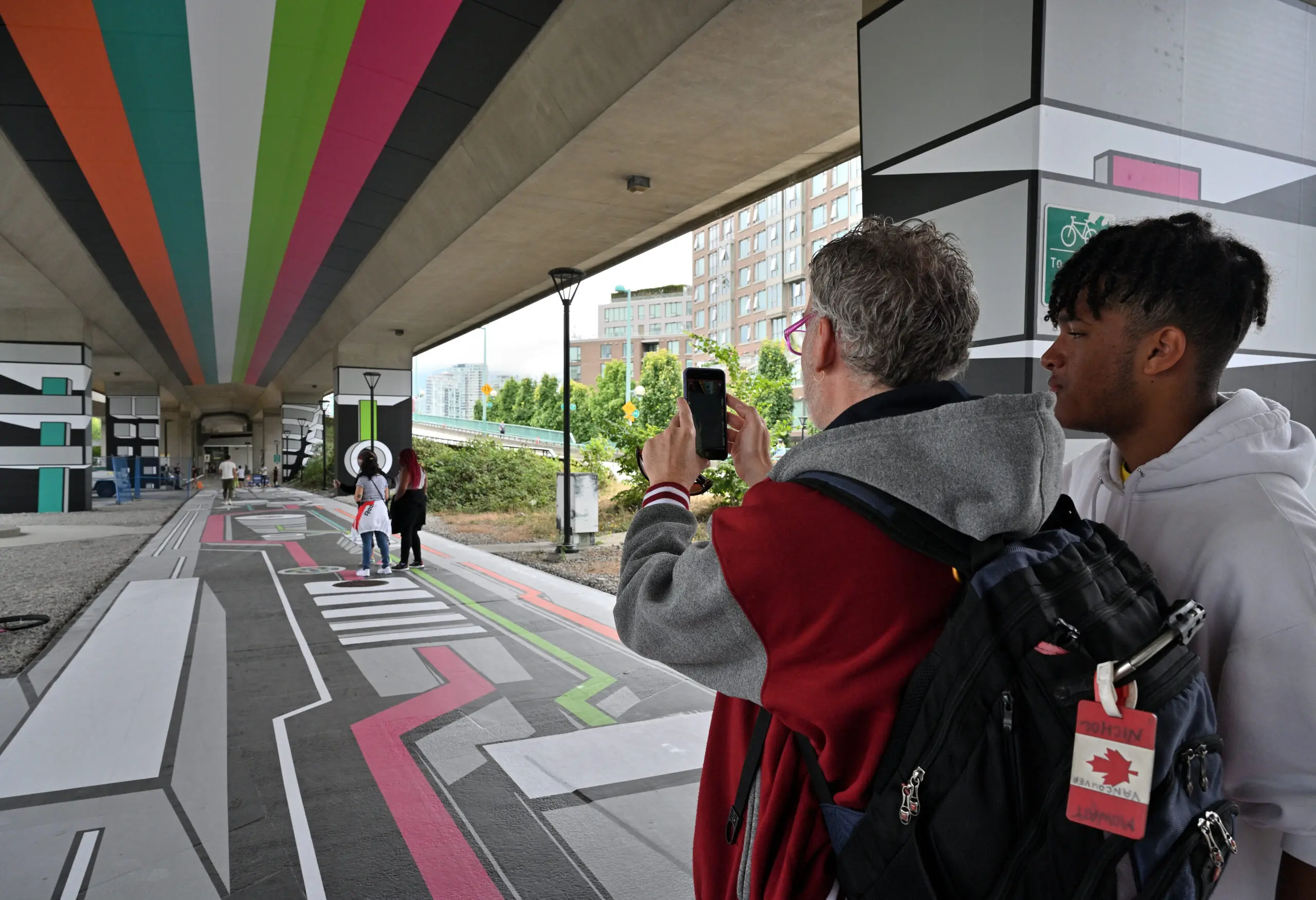
With Voxel Bridge, the Vancouver Biennale takes Contemporary Art to the epicenter of blockchain innovation. The underside of the south end of Vancouver’s Cambie Bridge is being transformed by artist Jessica Angel into a 19,000 square feet (1,765 square metres) public art installation that comes to life as the biggest blockchain-based augmented reality experience of its kind.
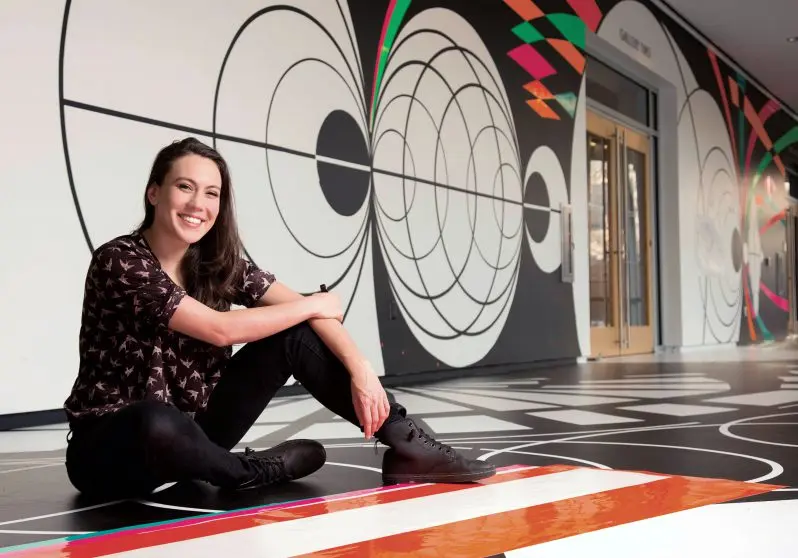
At first glance, the artwork takes the form of a massive two-dimensional vinyl mural that wraps the pedestrian walkway, supporting columns, and underside of the bridge, providing an immersive experience reminiscent of a computer circuit board slightly askew. With the use of the Vancouver Biennale app, which can be downloaded at no cost for iOS and Android devices, visitors walk through the mural and use their cell phones to dive into an interactive digital wonderland. This multi-sensory adventure is made possible by the revolutionary advancements in Augmented Reality (AR) developed for this installation by Spheroid Universe and supported by blockchain technology on the Kusama Network.
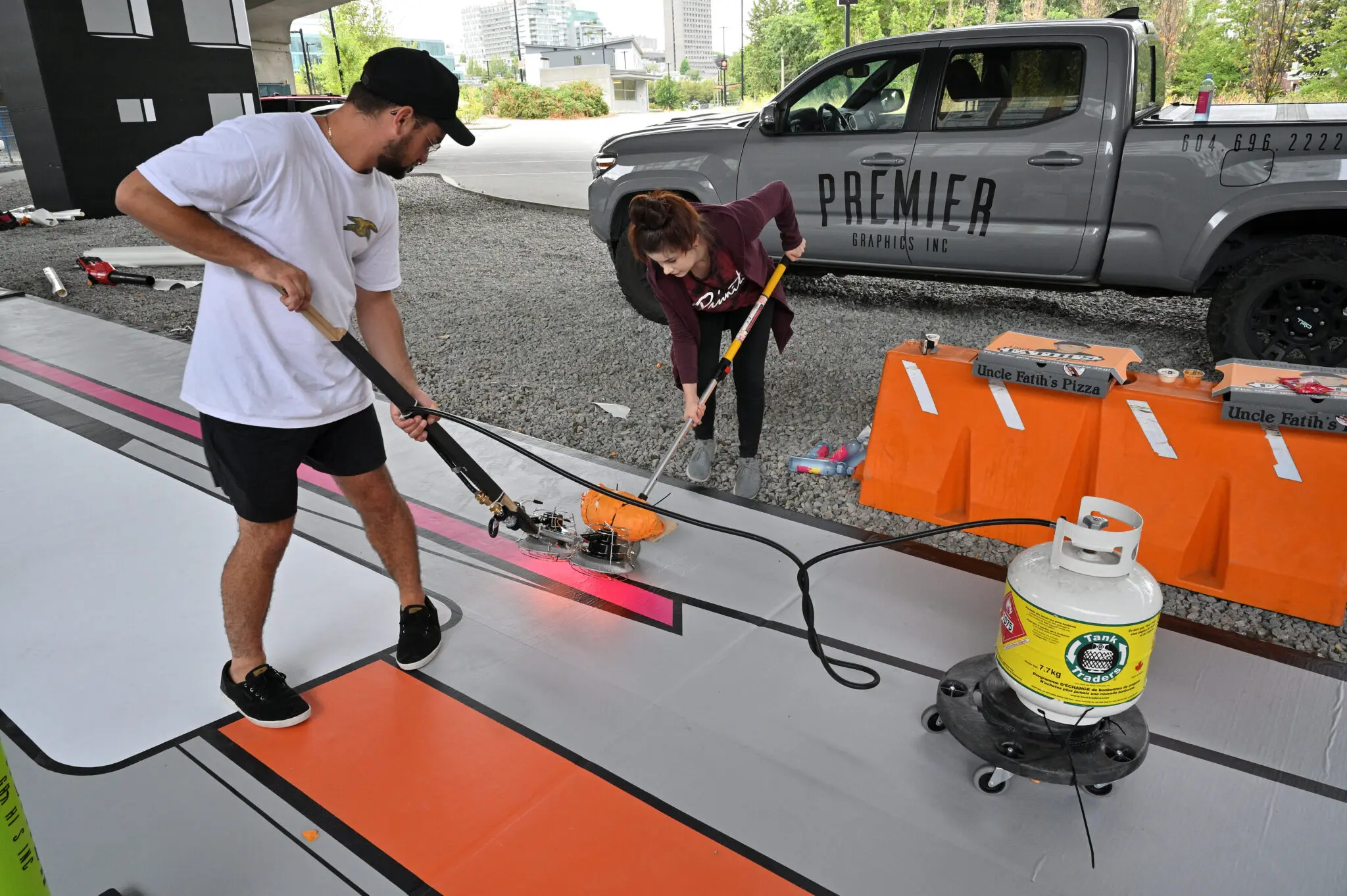
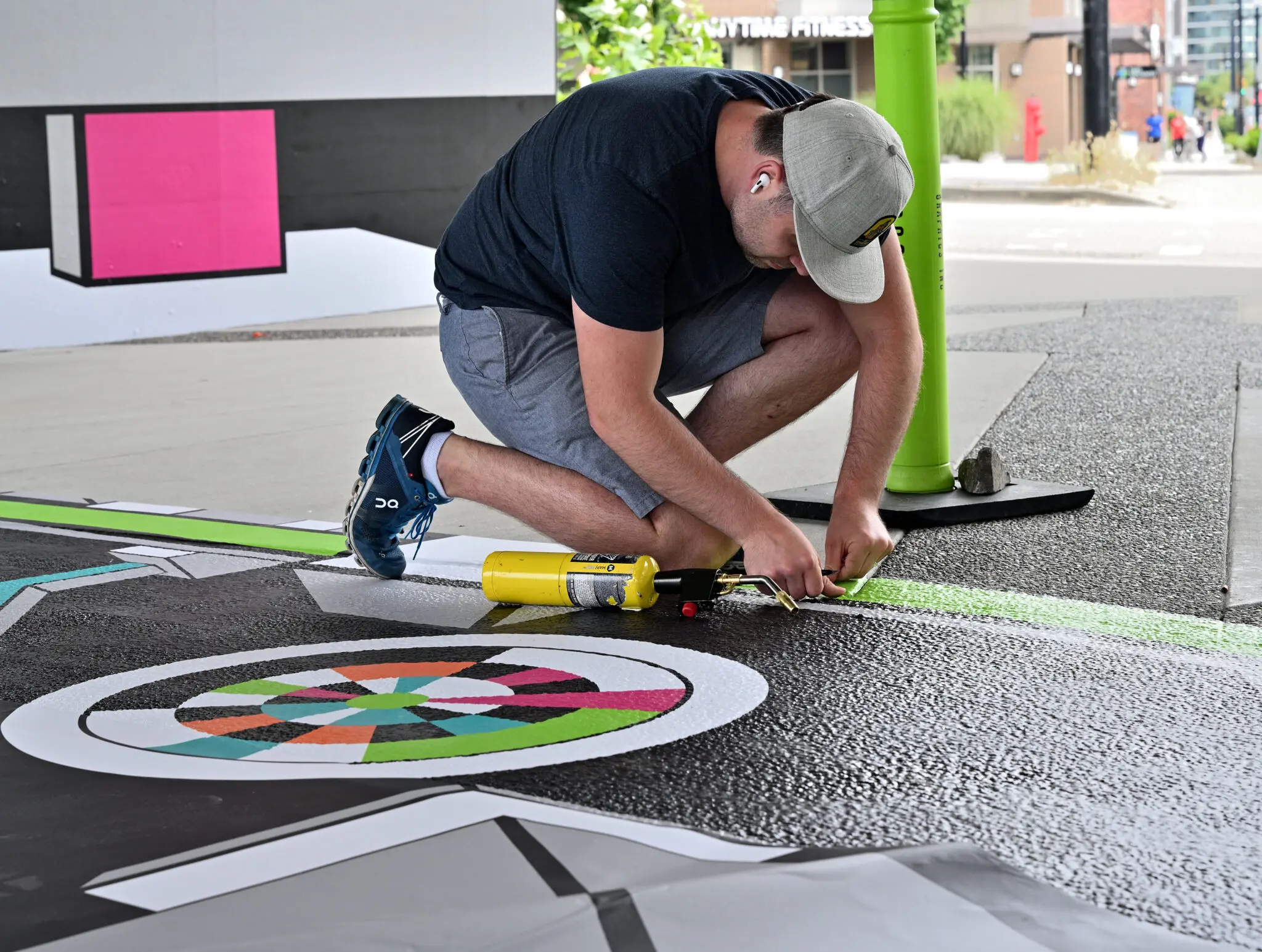
Voxel Bridge is a milestone event in Contemporary Art. This is not simply a mural or a piece of crypto art. Voxel Bridge exists simultaneously in three worlds: in the real world under Vancouver’s Cambie Bridge, in Augmented Reality as experienced through the app, and in live blockchain. As an integrated fusion of the real and digital worlds, it delivers a groundbreaking audience experience using the latest advancements in Augmented Reality technology. There are twenty different interactive animations throughout the AR experience through which visitors learn about the history of the Kusama Network, known as the canary experimental network, and how it’s created, funded and governed. The artist uses live blockchain data as a creative tool to create a direct real-time projection of the blockchain, taking this abstract technical concept and visualizing it so that people can see it live through the artwork.
Blockchain technology is widely considered to have the potential to change the way we interact in the world. It is currently believed to be the most secure way to record and track digital data, capable of eliminating fraud, counterfeiting, and hacking. The possibilities for all business sectors, including banking, voting, healthcare, art, and government transparency are endless. Voxel Bridge is the first art installation to show the world this transformative, emerging technology.
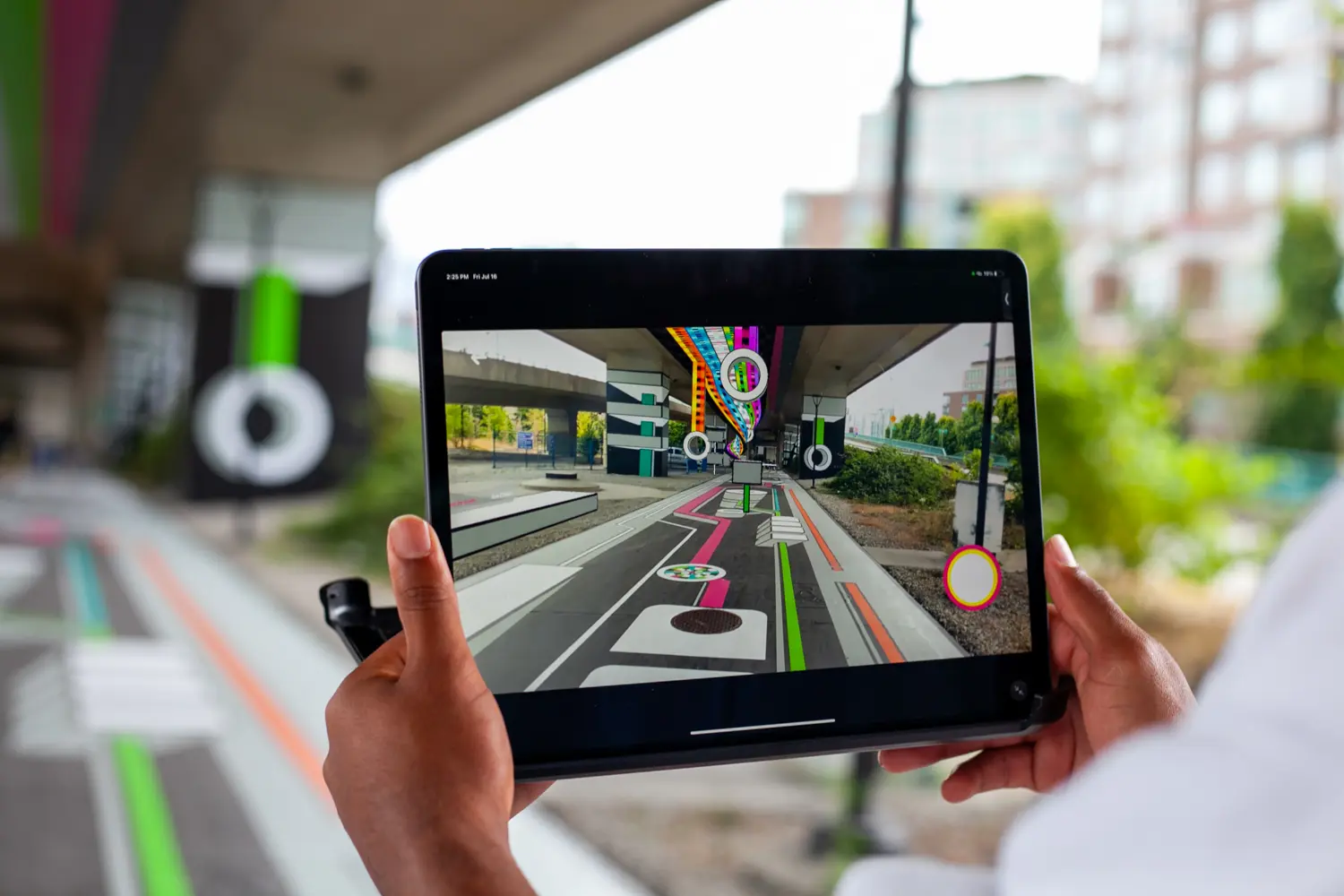
“The Vancouver Biennale has always been ahead of the curve and pushed the traditional boundaries of art in public space. Now that the very definition of public has evolved to mean virtual, we were determined to bring an art installation of great artistic and technical significance to the world,” says Barrie Mowatt, President and Artistic Director of the Vancouver Biennale. “The Vancouver Biennale is all about using art as a catalyst to learning, so if you don’t really have a clue about the latest tech buzzwords like blockchain, cryptocurrency, augmented and virtual realities, this art installation provides a really accessible and visually mesmerizing way to learn.”
“Art is a mobilizing force with the power to bridge seemingly dissimilar worlds, and Voxel Bridge exhibits this capacity,” says artist Jessica Angel. “This installation transcends the enjoyment of art into a unifying and experimenting effort that enables blockchain technology, AR, and public art to examine new ways of interaction.”
Spheroid Universe, responsible for developing and powering the AR / XR solutions for Voxel Bridge, is the first in the world to create the unique opportunity to see the work of Kusama blockchain through art using Augmented Reality (AR) technologies, advanced developments in the field of computer vision, and Artificial Intelligence (AI).
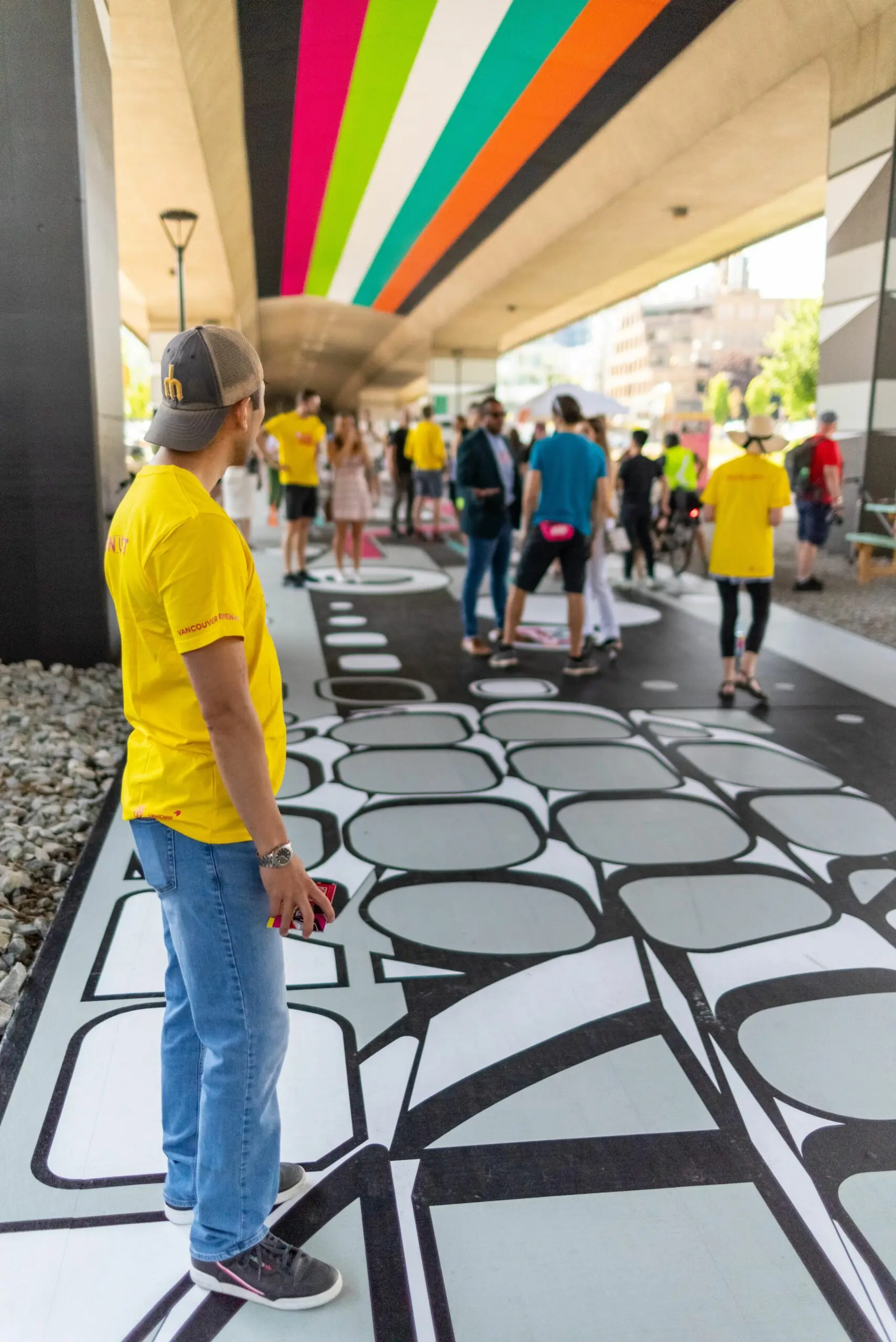
“In the Voxel Bridge project, we visualized the life of the Kusama Network blockchain as an AR installation based on dynamic geolocation, where the key technological challenge is the precise positioning of a giant interactive AR object, which can be achieved not so much based on markers, but mainly on photo and video data about the surroundings. We plan to apply this experience to render NFT Art AR-objects in the Polkadot / Kusama Network ecosystem,” according to Spheroid Universe CEO Andrey Almiashev. “In fact, this was the first test of Web 3.0 Spheroid.Earth, our as yet undisclosed algorithm for positioning large ARterritories, completely coinciding with the real world. Solving this problem on a global scale will require the participation of many people collecting data from different parts of the planet, and the result will be a digital version of the Earth, which will be jointly owned by all who participated in the creation.”
“Creative and innovative means of information visualization are crucial in a global society ever more reliant on IT and digital systems. The difference that information comprehensibility makes are both broad and deep and can result in sea changes of attitudes and generally, one would hope, in the direction of knowledge and understanding rather than ignorance. This is ever more important in nascent social technologies such as Kusama, where the social benefits of the technologies can only be delivered through tireless masseducation on why those benefits are needed and how they are delivered. Jessica Angel’s installation Voxel Bridge at the Vancouver Biennale is one step in the right direction, helping illustrate that technologies which interconnect the global population in an unprecedented scale, immediacy and closeness must be carefully designed so that key expectations of the individual such as privacy, property rights and treatment without prejudice are guaranteed by the underlying technology we use.” – Dr Gavin Wood, Polkadot Founder and Former Ethereum CTO and Co-Founder.
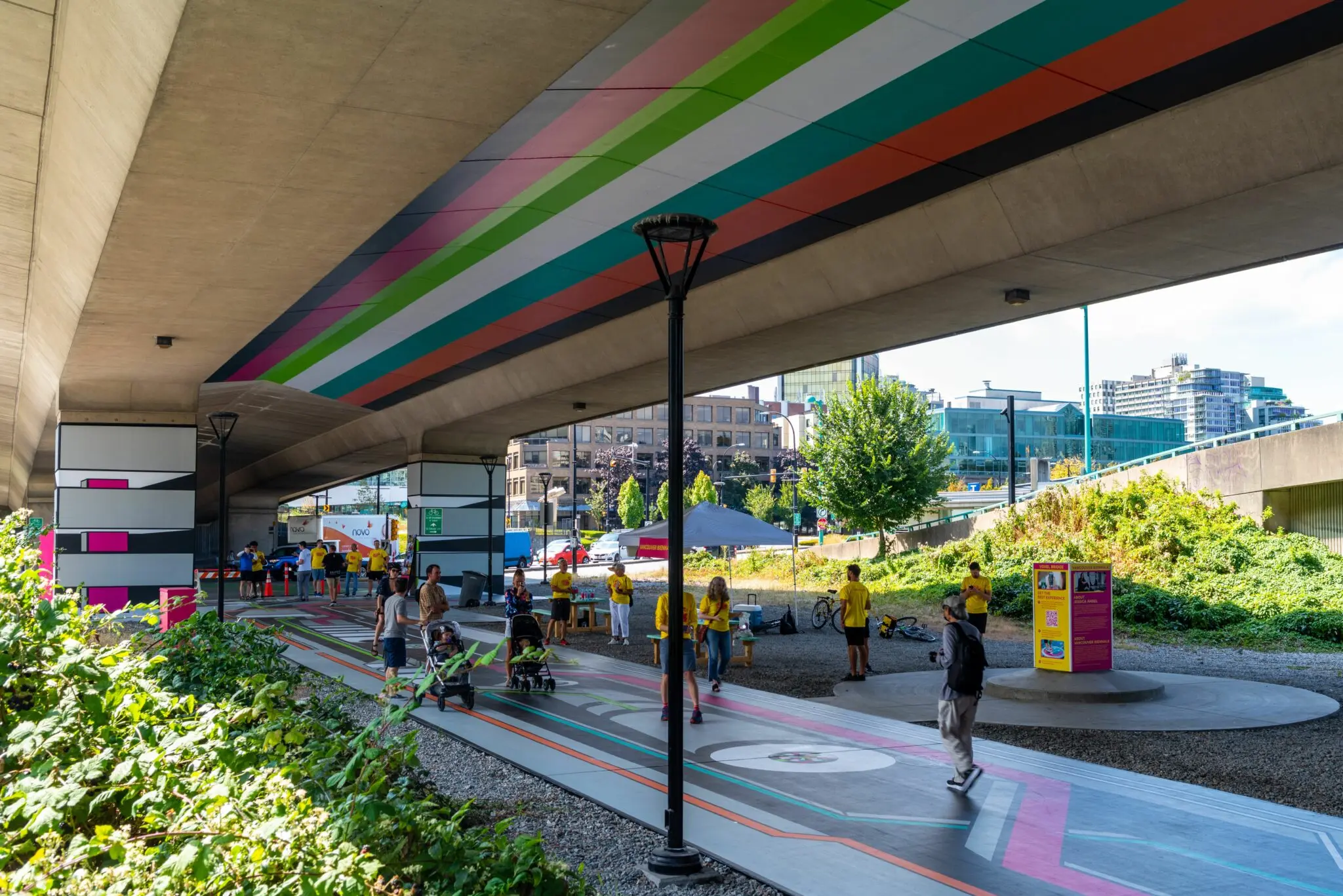
Quick Facts
- Size: 19,000 square feet / 1,765 square meters
- Material: Vinyl and Augmented Reality
- Location: South Cambie Bridge underside, Vancouver Canada
- Voxel Bridge is the biggest blockchain-based augmented reality experience of its kind.
- Voxel Bridge is the first art installation to visualize blockchain technology in real-time.
- Voxel Bridge is the first immersive experience in public space with the purpose to educate about blockchain technology, using Kusama Network events and funds from the Kusama Treasury.
- There are 20 AR experiences throughout Voxel Bridge.
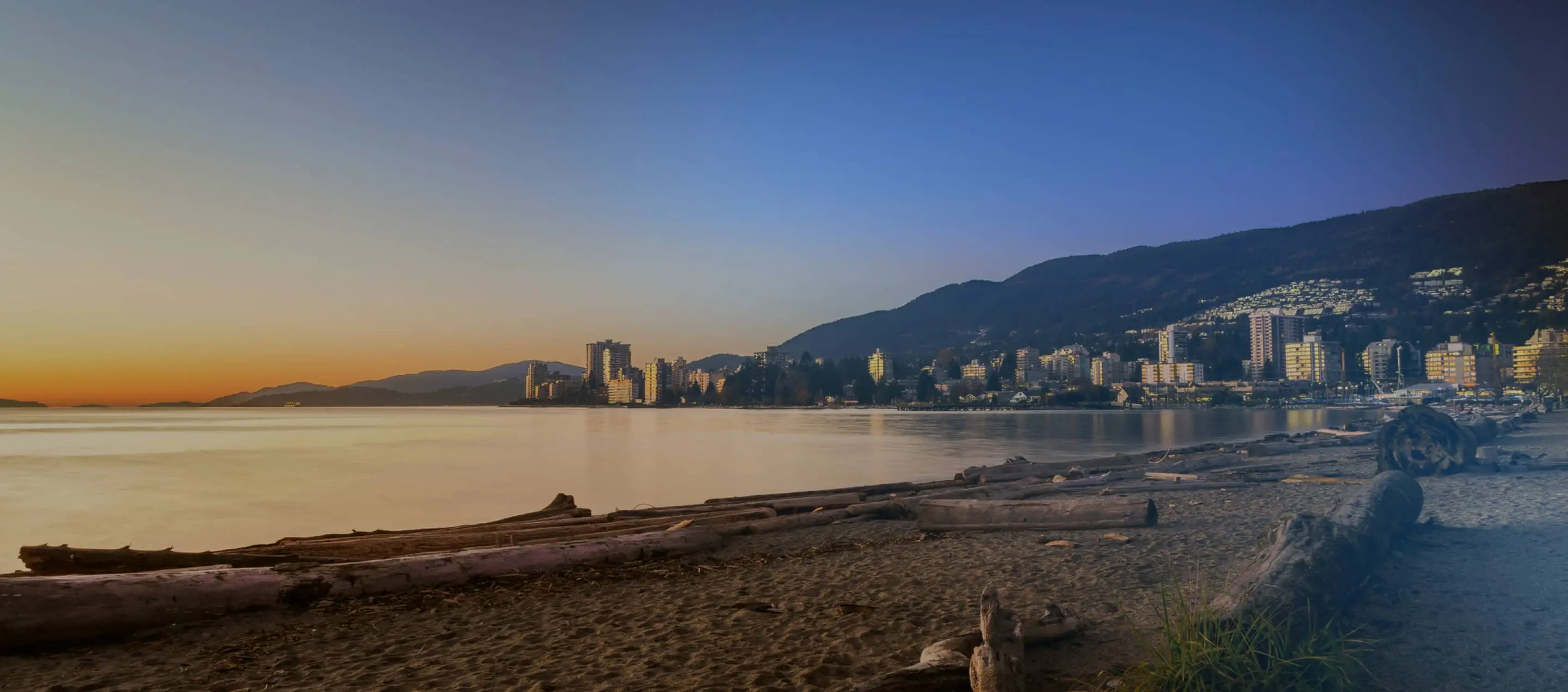
Craving
culture?
Get
ideas.